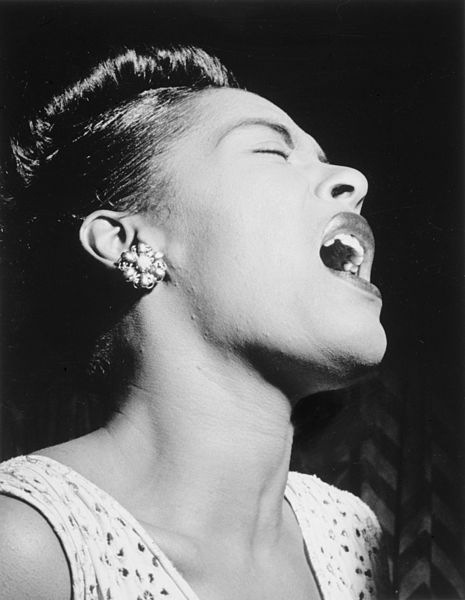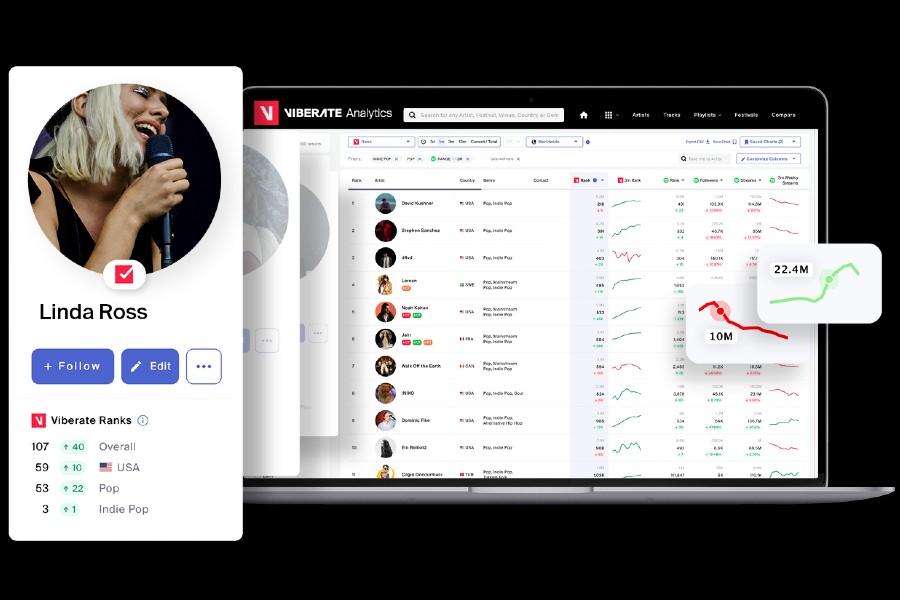 Billie Holiday’s name has been in the news lately for some reasons that remind us of the tragedies she sang about and those she endured. First, there was the story of the rather appallingly tone-deaf PR firm who thought one of Holiday’s most well-known recordings, “Strange Fruit”—a song about lynching—would make a great name for their brand.
Billie Holiday’s name has been in the news lately for some reasons that remind us of the tragedies she sang about and those she endured. First, there was the story of the rather appallingly tone-deaf PR firm who thought one of Holiday’s most well-known recordings, “Strange Fruit”—a song about lynching—would make a great name for their brand.
Strange Fruit
Then there were the new details in Johann Hari’s book Chasing the Scream of how Holiday was hunted, haunted, and possibly framed by Federal Bureau of Narcotics head Harry Anslinger. These stories compound the image of Holiday as a tragic figure, a casualty of societal ills and personal demons.
Holiday may have documented her troubled life in her autobiography, but she would have preferred to be remembered for her music.
God Bless the Child
Born 100 years ago, the jazz songstress transmuted her personal pain into beauty; her interpretations of songs became standards in their own right, and became uniquely hers. “God Bless the Child,” resonates with Holiday’s own difficult childhood, shadowed by neglect and loss, but she delivers it as though all had been forgiven and redeemed. She sang through abusive relationships and addiction and some pretty shabby treatment by a racist industry.
For example, Bret Primack tells the story in a JazzTimes article of the Fox Theatre in Detroit forcing Holiday to wear blackface in order to appear on stage with Count Basie’s Orchestra. As Lady Day herself remarked of the humiliating episode, “There’s no damn business like show business. You have to smile to keep from throwing up.”
Fine and Mellow
Toward the end of her life, in 1956, she gave one of her last of 22 concerts at Carnegie Hall (see her do her own composition “Fine and Mellow”). The rehearsals—wrote New York Times critic Gilbert Millstein in the album liner notes—“had been desultory,” her voice “tinny and trailed off.” But at showtime, she appeared “poised and smiling,” singing “with strength undiminished.” In his liner remarks, Nat Hentoff described Holiday’s “assurance of phrasing and intonation” and “an outgoing warmth, a palpable eagerness to reach out and touch the audience,” a smile “often lightly evident on her lips and her eyes.”
In a retrospective essay, Hentoff refers to the sad fact that “Billie is most remembered as a victim—of herself, of society” as well as “the myth that, toward the end, Lady invariably sounded like a cracked husk of what she had been years before.” While it’s certainly true that she fell victim to others’ designs and her own bad judgment, she had her share of triumphs as well, most of them on the stage. Even in 1959, the year of her death, when her problems with alcohol had worsened to a soon-to-be fatal degree, and her voice had lost some of its vitality, she performed with swagger and grace.
Please Don’t Talk About Me When I’m Gone
See her above sing “Please Don’t Talk About Me When I’m Gone” in one of her final live appearances. Holiday’s short, tragic life may have given us plenty to talk about, but her memory is best preserved by listening to her sing.
Become a Harlem Insider!
By submitting this form, you are consenting to receive marketing emails from: Harlem World Magazine, 2521 1/2 west 42nd street, Los Angeles, CA, 90008, https://www.harlemworldmagazine.com. You can revoke your consent to receive emails at any time by using the SafeUnsubscribe® link, found at the bottom of every email. Emails are serviced by Constant Contact








